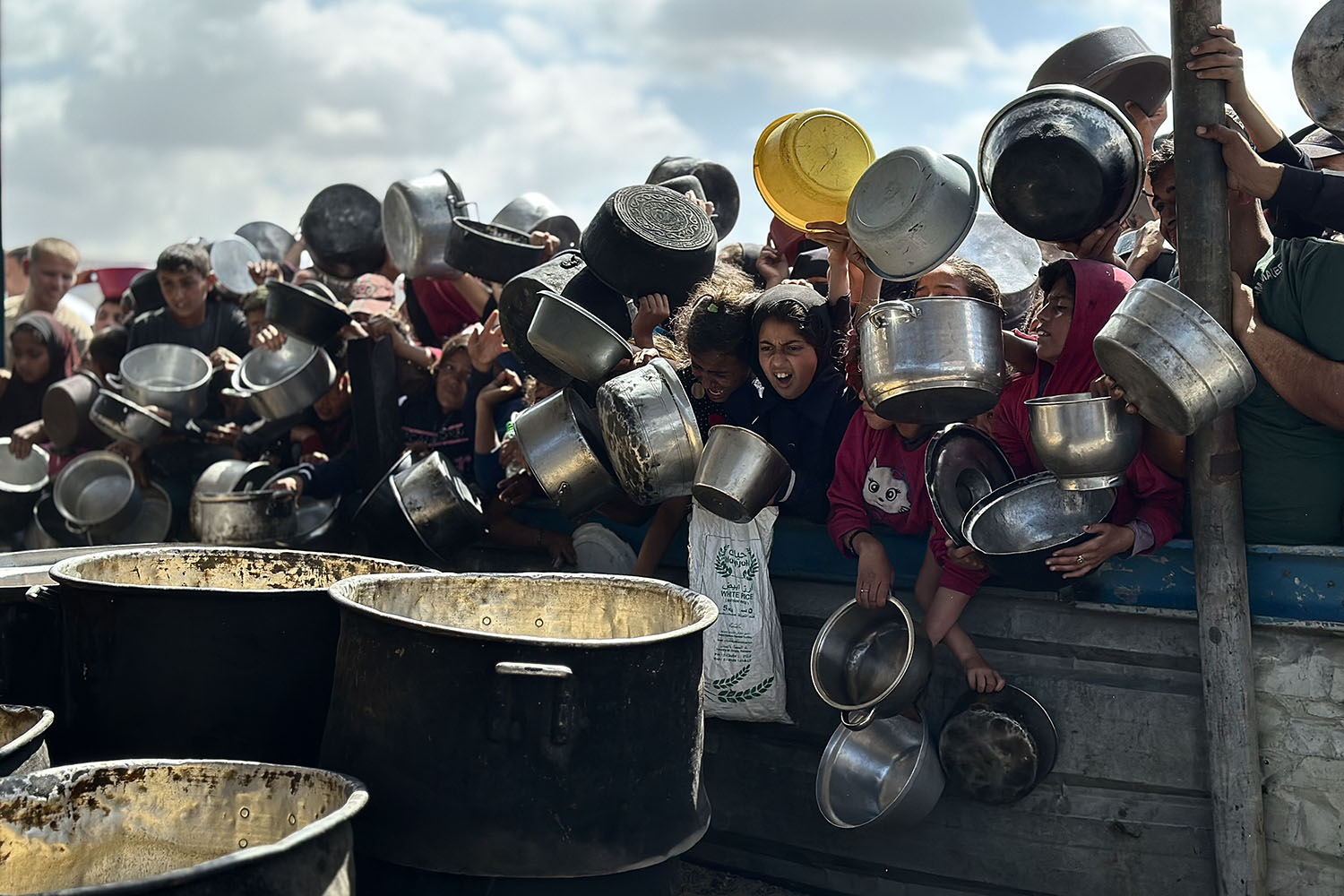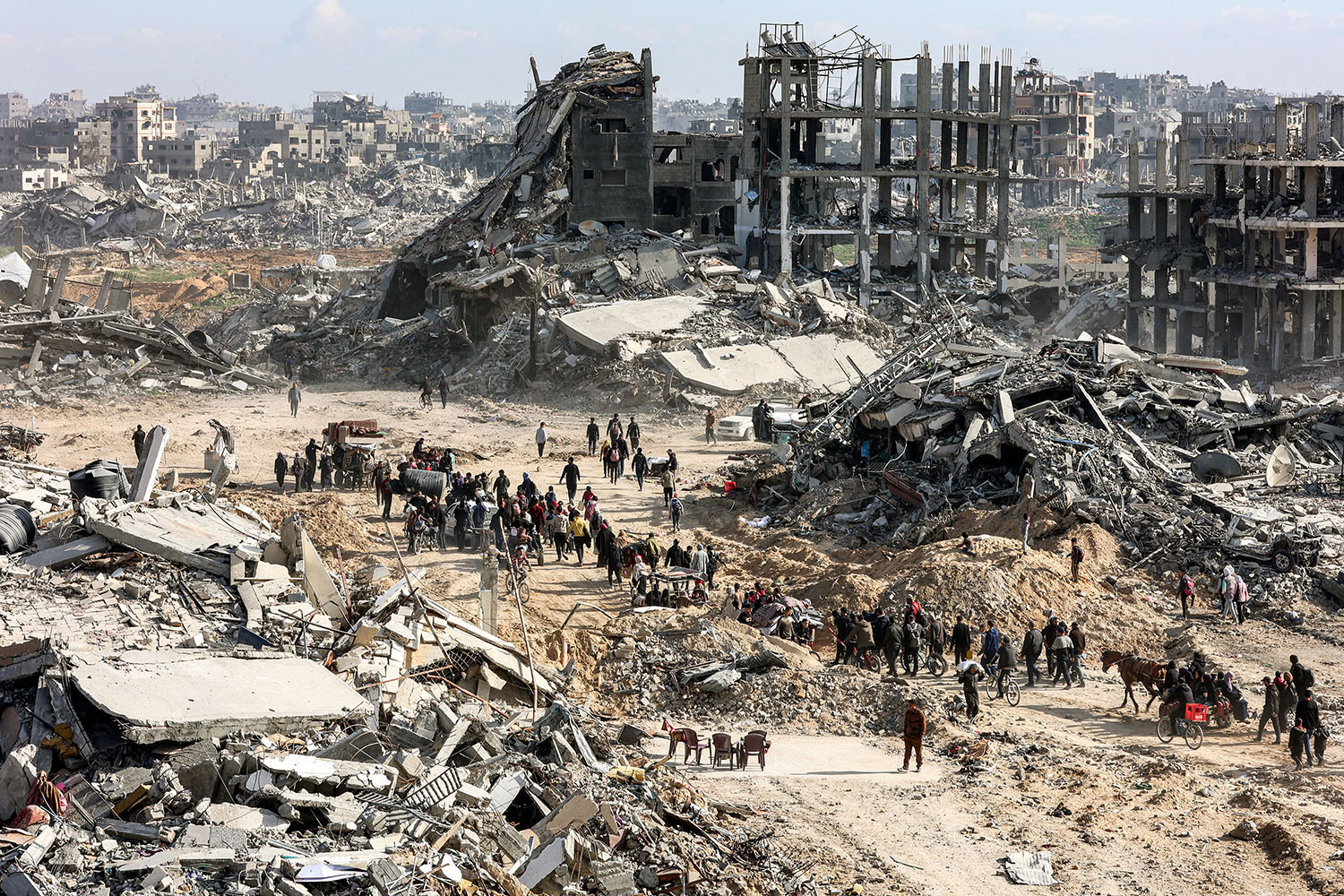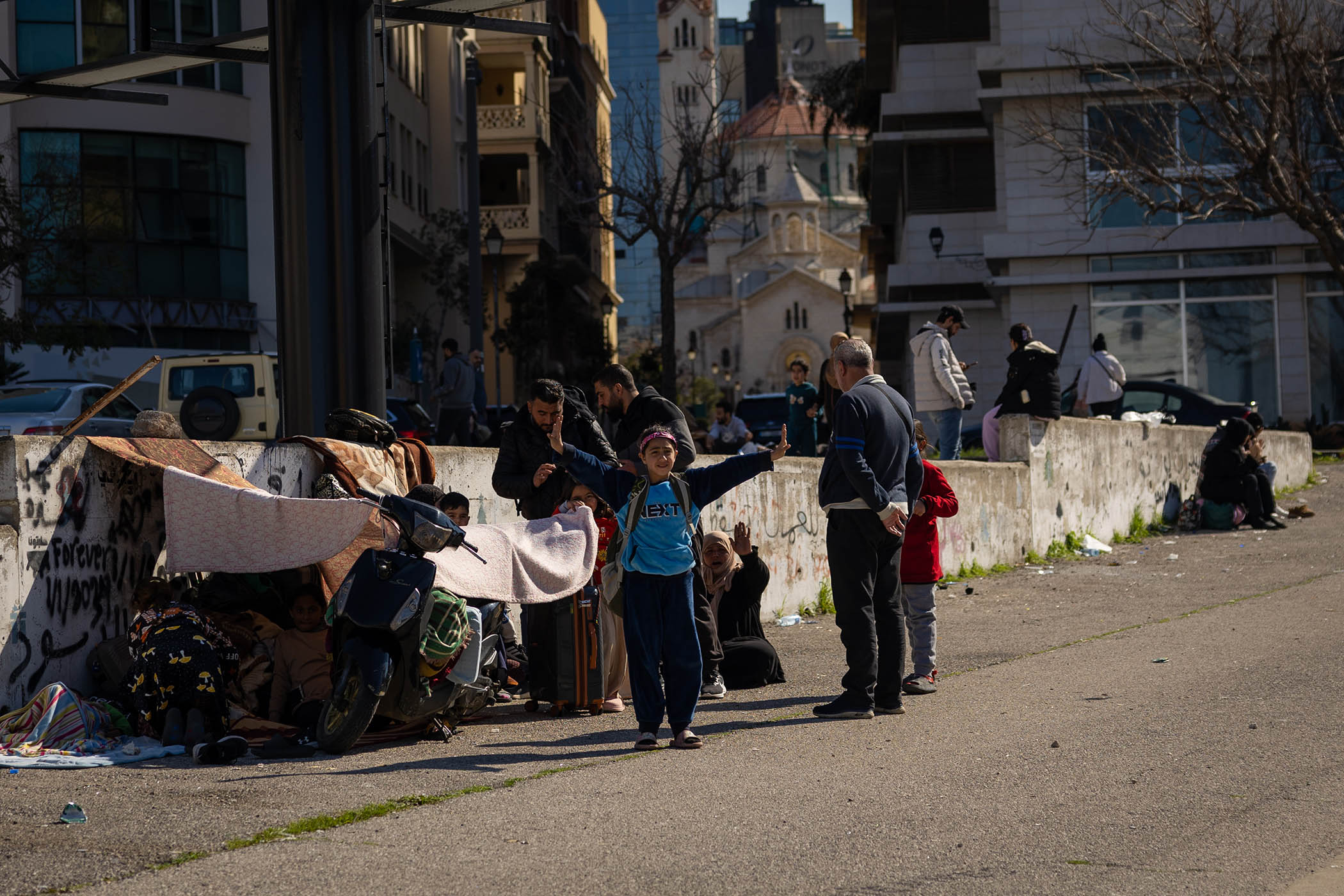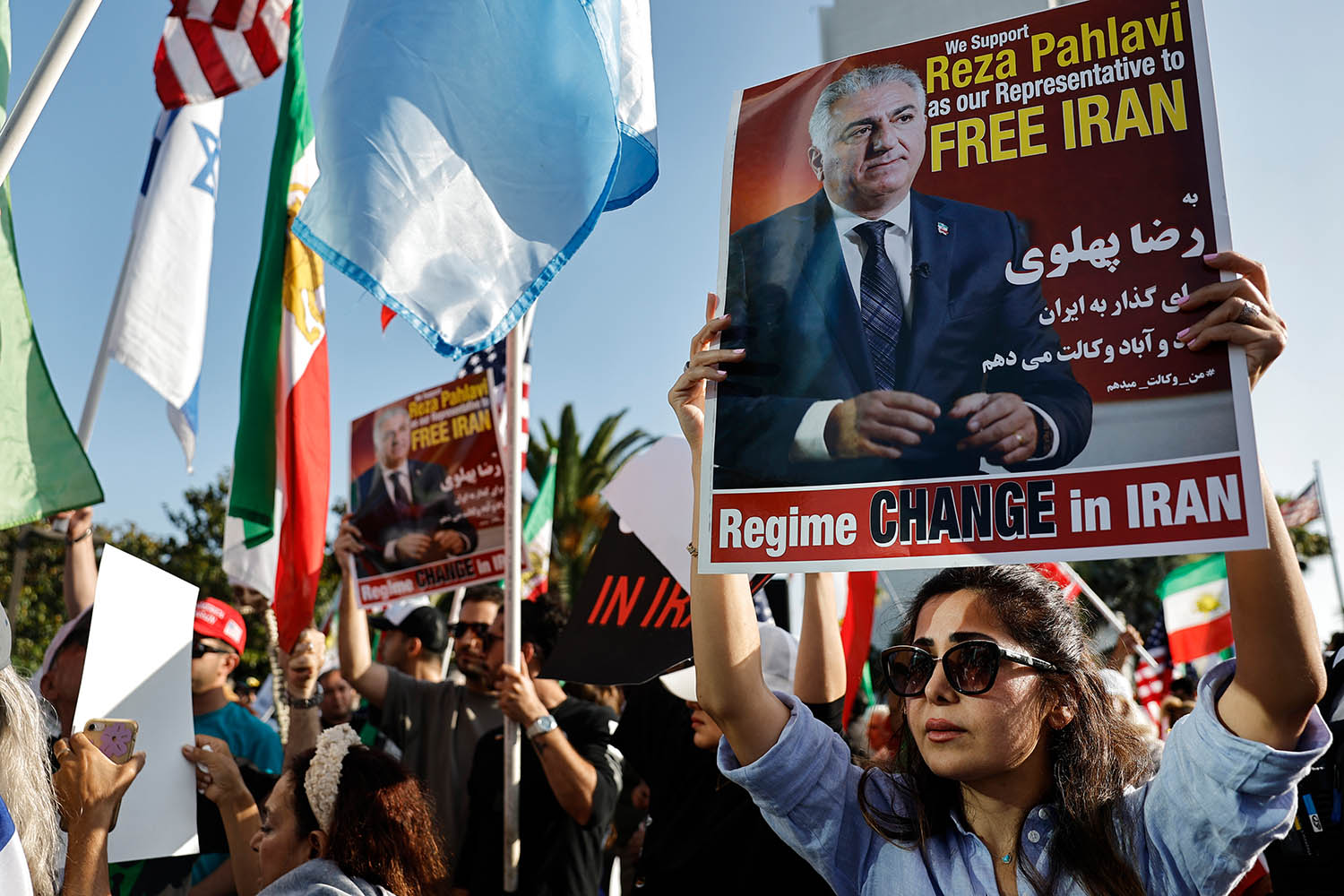In a week when some of Israel’s closest allies issued their strongest condemnations since the war in Gaza began 19 months ago, it was the words from senior Israeli political figures that had the biggest impact.
Former prime minister Ehud Olmert said Israel’s actions in Gaza were “very close to a war crime”, while leftwing firebrand politician and ex-military deputy chief of staff Yair Golan warned that “Israel is on the path to becoming a pariah state, like South Africa once was.”
Golan, who leads the leftist Democrats party, then went further: “A sane state does not wage war against civilians, does not kill babies as a hobby and does not set goals for itself such as the expulsion of a population.”
Israel’s prime minister, Benjamin Netanyahu, quickly hit back, calling Golan’s comments an “outrageous incitement against our heroic soldiers and against the state of Israel”. The defence minister, Israel Katz, described it in turn as “vile blood libel” and banned Golan from military reserve duty.
Golan is a fringe figure; his party was created last year after a merger of two small leftwing if historic parties, Meretz and Labor. But his comments echo a growing view that the conflict in Gaza is changing Israel as a nation. Several polls in recent months show that almost 70% of Israelis want an end to the war, along with a deal to bring the remaining hostages back.
The unprecedented joint statement from the leaders of Britain, France and Canada opposed Israel’s latest military assault on Gaza and demanded it allow aid to enter. “If Israel does not cease the renewed military offensive and lift its restrictions on humanitarian aid, we will take further concrete actions in response,” they warned.
In a fiery speech to parliament, the UK foreign secretary, David Lammy, called Israel’s blocks to aid “abominable”, and warned “we are now entering a dark new phase in this conflict”.

Britain also cancelled trade deal negotiations with Israel, and a majority of EU foreign ministers backed a review of its trade and diplomatic pact with Israel because of the renewed attack on Gaza.
Netanyahu accused Keir Starmer, Emmanuel Macron and Mark Carney of “emboldening Hamas to continue fighting for ever”. And after the fatal shooting of two young Israeli diplomats in Washington, Israel’s minister for diaspora affairs and combating antisemitism, Amichai Chikli, attacked “irresponsible leaders in the west who give backing to this hatred”, criticising the French, British and Canadian heads of government for “emboldening the forces of terror”.
The split between Israel and its erstwhile allies was not helped by a large group of international diplomats coming under Israeli fire during a visit to a besieged refugee camp in the West Bank city of Jenin.
Newsletters
Choose the newsletters you want to receive
View more
For information about how The Observer protects your data, read our Privacy Policy
The diplomats had been on an official mission to observe the humanitarian situation, but Israel claimed the group had “deviated from the approved route”, prompting troops to fire “warning shots”.
But while the language from western nations was stronger than ever, many observers believe the actions that followed it were timid. Former Israeli negotiator Daniel Levy said the steps announced by the British government were “a nothingburger”, adding that sanctions on individual Israeli settlers are likely to strengthen their popularity and fail to affect the broader Israeli public. “It’s not settlers committing genocide or ethnic cleansing in Gaza – that is the state of Israel,” he said.
“The chasm between the British government’s words and the operational elements was huge. Freezing negotiations for a new trade agreement without touching existing trade relations is transparently the lowest bar, not commensurate with the challenge at hand or the words employed to describe what is happening.”
Mairav Zonszein of the International Crisis Group said that while the EU’s actions also remained “optics, the question is whether it is the beginning of a shift that will actually lead to action... The starvation and humanitarian crisis indicate that if the EU understands the severity of the situation, it would be time to act now to stop the bombs and starvation immediately.”

Even so, Zonszein and Levy both felt that Donald Trump administration’s evident sidelining of Netanyahu had emboldened allies to speak up. “When they do comment on Gaza, it’s grotesque, but there is a sense that America’s priorities regionally lay elsewhere,” said Levy.
The new offensive seeks to force millions into a tiny area in the south of the territory after more than two months of a complete blockade. The global authority on hunger warned earlier last week that half a million people in Gaza face starvation and the entire population is desperate for food, with goods essential for survival on the verge of running out.
The international shift did little to push Israeli authorities to allow desperately needed aid into Gaza. The UN secretary general, António Guterres, said last week that almost 400 lorries were cleared to enter the territory. “But supplies from only 115 trucks have been able to be collected,” he said. Guterres pointed to the equivalent of almost 9,000 lorryloads of aid waiting on the borders.
The philanthropist Amed Khan said: “Just imagine, people just a few miles away are starving. It's a farce – really, the Israelis don’t want to let anything in; they are paying lip service to foreign governments,” he said. Only pressure from the White House is likely to force a change, he added. “From where I sit inside Israel, this diplomatic isolation is a real concern,” Zonszein added. “It's insane that it took this long, but it’s still not enough – too little too late. Even so, people underestimate how powerful it can be if more leaders say enough," she said.
HA Hellyer of the Royal United Services Institute said the results of the shift throughout last week remained unclear. “In the end, all these western countries can change their tune in terms of rhetoric, and be tremendously aggressive in that regard, but it means little if at the same time they continue to provide operational support to the Israelis. That’s the real question, and so far, the jury is out,” he said.
Photograph by AFP, Anadolu/Getty, Jack Guez/Getty



